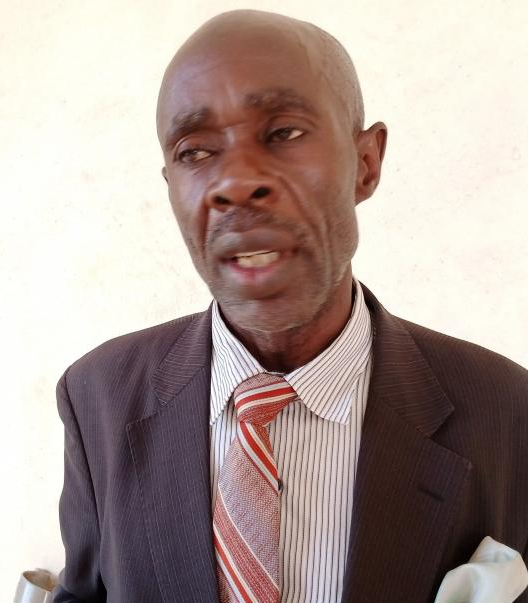It’s been a busy few months for the Bank of Uganda as the rising prices of essential commodities and fuel push inflation and the foreign exchange rates to record highs.
The government has so far rejected any proposals that it introduces fuel price subsidies or waive taxes to make the products cheaper, saying this would be “suicidal and a blunder”, a recipe for the collapse of the economy.
Early last week, the US dollar exchanged for 3,808 shillings for the first time since March 19, 2020 when the forex rate went up to 3817. That was the time a record high figure of 3,940 was quoted at outlets in Kampala, at a time when global lockdowns were being introduced to counter the spread of the Covid-19 pandemic.
Experts then said that off-shore investors in the financial market were withdrawing from Uganda and other countries back to their own countries due to the uncertainties associated with investing overseas.
Exports were also being affected as the markets were switching consumption behavours, and flights were grounded.
Starting May, however, the shilling had gained by 2.3 percent by August, owing to increased inflows from forex bureaus, foreign financed non-government organizations, remittances and offshore players.
The Central Bank also used the sale of government treasuries to regulate the foreign exchange market by “mopping up excess liquidity.”
“Attractive yields of government securities combined with stable macroeconomic outlook attract dollar inflows into the financial market,” said Adam Mugume, BoU’s Executive Director of Research.
Between August 2021 and early May 2022, the rate had dropped to about 3,520, following a sustained appreciation trend by the shilling.
This was not until the trend was reversed by several factors including the rising global commodity prices, low exports and low donor inflows, according to experts.
The demand for the dollar has first outstripped the supply.
As the Dollar rate fluctuates around the 3,800 mark for the first time in months, economists say the Central Bank must do whatever it can to keep the rates in check, though there are few options.
“Towards closure of the week the unit cooled off, lifted by the Central Bank dollar selling intervention and the hawkish monetary policy stance. In the regional markets, most Central Banks took similar hawkish actions to curb the soaring inflation across all economies,” says Patrick Kaboyo, Managing Director, Alpha Capital Markets.
He however says that this was seen as temporary relief before persistent demand builds up again.
During the week, the Bank of Uganda made private placement of treasuries (a sale of government securities to selected participants, rather than a public auction) worth 1.4 trillion shillings to reduce the amount of shillings in circulation. But Kaboyo says the government apparently needs money for financing its revenue shortfalls.
“This is a move seen as raising financing ahead of closure of the fiscal year to meet the revenue shortfalls while managing the risk premium that would otherwise manifest at this time of the year,” he says.
Earlier the same week, the Bank of Uganda had used a Repurchase Agreement, REPO, short term borrowing method where the government sales its financial instruments and re-purchases them within two days.
The 93-billion shillings mop-up saw the foreign exchange rate ease slightly to 3,780 buying and 3,790 selling.
Uganda President says offering subsidies and removing taxes on key Ugandan imports such as fuel and wheat is “suicidal and a blunder” which would use up foreign currency reserves and cut tax revenues.
Meanwhile in Kenya, the local currency has also been on the decline against the dollar, with the official rate moving from 112 in December to 117 currently.
Private sector players however, quoted the dollar at a record 120 Kenya shillings, according to Rajul Malde, the Commercial Director at Pwani Oils.
The company, whose major export market has been Uganda says it has decided to close down due to the high cost of doing businesses.
“Getting sufficient amount of dollars required to support the factory in terms of getting sufficient raw materials is not happening, we are not even running the plant right now because of lack of raw materials,” Malde said.
Prices of edible oil and soap, which are mainly made out of crude oil palm and other oil seeds, have been the most affected in addition to petroleum products.
This has been blamed on the difficulties in getting shipments out of Ukraine and Russia, some of the largest global producers.
Permanent Secretary at the Ministry of Finance, Planning and Economic Development, Ramathan Ggoobi says the prices of these edible oils are expected start dropping, when Indonesia, a major exporter of crude palm oil resumes exports in July.
On the general inflation situation, Ggoobi outlines a mixture of long and short term measures including “promoting a free and competitive environment to ensure continuous supply of fuel and other goods whose prices have increased. This is to ensure that demand does not outstrip supply.”
Others measures are supporting farmers to grow more food and oil seeds to increase domestic supply, applying appropriate fiscal and monetary policies to ensure inflation doesn’t go out of hand, and investing more funds to support local production of essential goods in the coming years.





